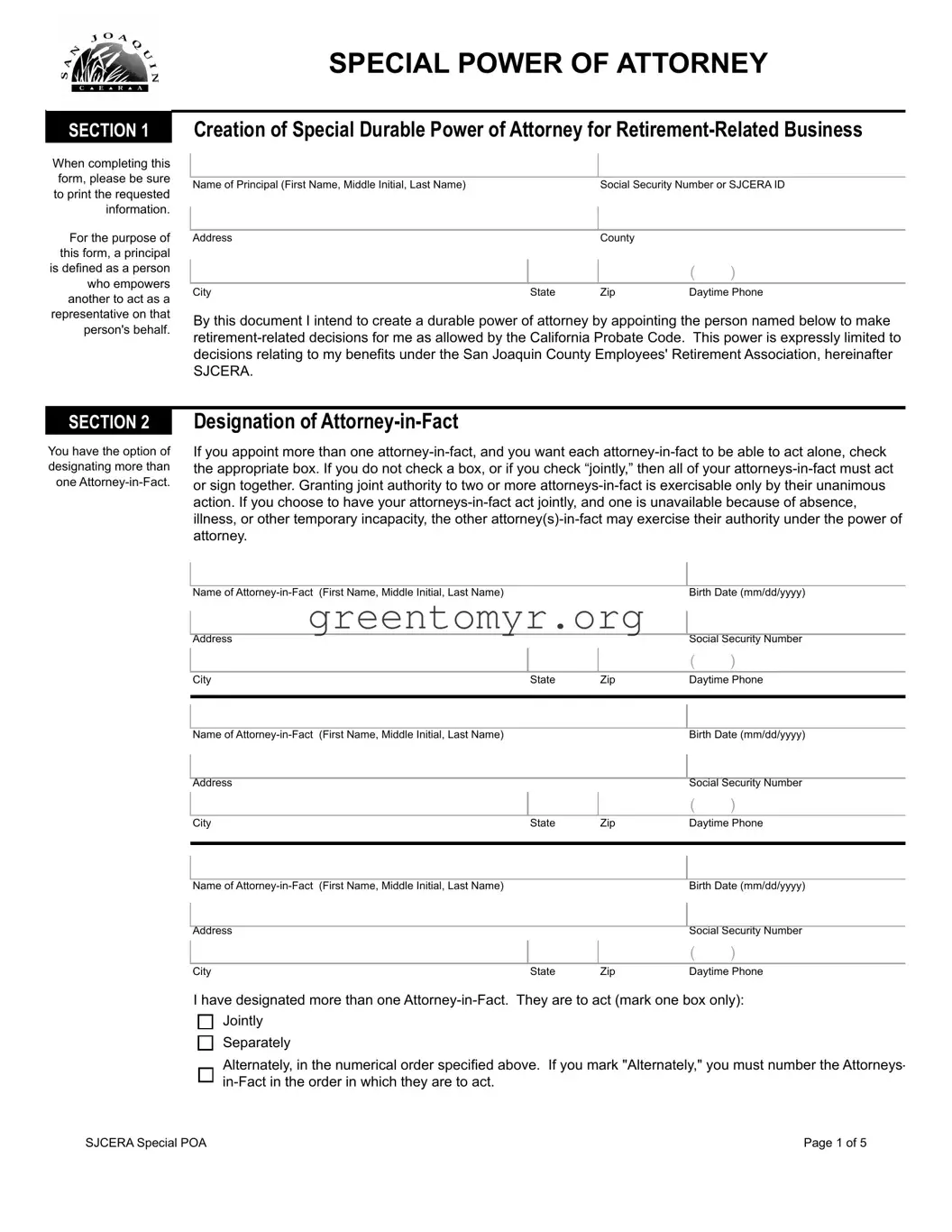Notice to Person Executing Durable Power of Attorney
The authority granted by the SJCERA Special Power of Attorney form is limited to matters related to SJCERA. The person designated as your Attorney-in-Fact does not have any authority over your other real or personal property. If you wish that your Attorney-in-Fact have authority over your real and/or personal property, it is recommended that you seek legal counsel.
You may notice that the language contained in the following (Warning) statement refers to more extensive authority than granted by the SJCERA Special Power of Attorney. This (Warning) statement is required by California Probate Code Section 4128 to be included in all pre-printed power of attorney forms even though the SJCERA Special Power of Attorney does not authorize your Attorney-in-Fact to do many of the things mentioned in the following (Warning) statement. Also, if you are concerned with the (Warning) statement or the extent of the authority being granted by the SJCERA Special Power of Attorney form, we again urge you to consult with an attorney.
(Warning): Notice to Person Executive Durable Power of Attorney
A durable power of attorney is an important legal document. By signing the durable power of attorney, you are authorizing another person to act for you, the principal. Before you sign this durable power of attorney, you should know these important facts:
•Your agent has no duty to act unless you and your agent agree otherwise in writing.
•This document gives your agent the powers to manage, dispose of, sell, and convey your real and personal property, and to use your property as security if your agent borrows money on your behalf. This document does not give your agent the power to accept or receive any of your property, in trust or otherwise, as a gift, unless you specifically authorize the agent to accept or receive a gift.
•Your agent will have the right to receive reasonable payment for services provided under this durable power of attorney unless you provide otherwise in this power of attorney.
•The powers you give your agent will continue to exist for your entire lifetime, unless you state that the durable power of attorney will last for a shorter period of time or unless you otherwise terminate the durable power of attorney. The powers you give your agent in this durable power of attorney will continue to exist even if you can no longer make your own decisions regarding the management of your property.
•You can amend or change this durable power of attorney only by executing a new durable power of attorney or by executing an amendment through the same formalities as an original. You have the right to revoke or terminate this durable power of attorney at any time, so long as you are competent.
•This durable power of attorney must be dated and must be acknowledged before a notary public or signed by two witnesses. (Please choose one or the other, but not both!) If it is signed by two witnesses, they must witness either (1) the signing of the power of attorney or (2) the principal’s signing or acknowledgment of his or her signature. A durable power of attorney that may affect real property should be acknowledged before a notary public so that it may be easily recorded.
•You should read this durable power of attorney very carefully. When effective, this durable power of attorney will give your agent the right to deal with property that you now have or might acquire in the future. The durable power of attorney is important to you. If you do not understand the durable power of attorney, or any provision of it, then you should obtain the assistance of an attorney or other qualified person.





